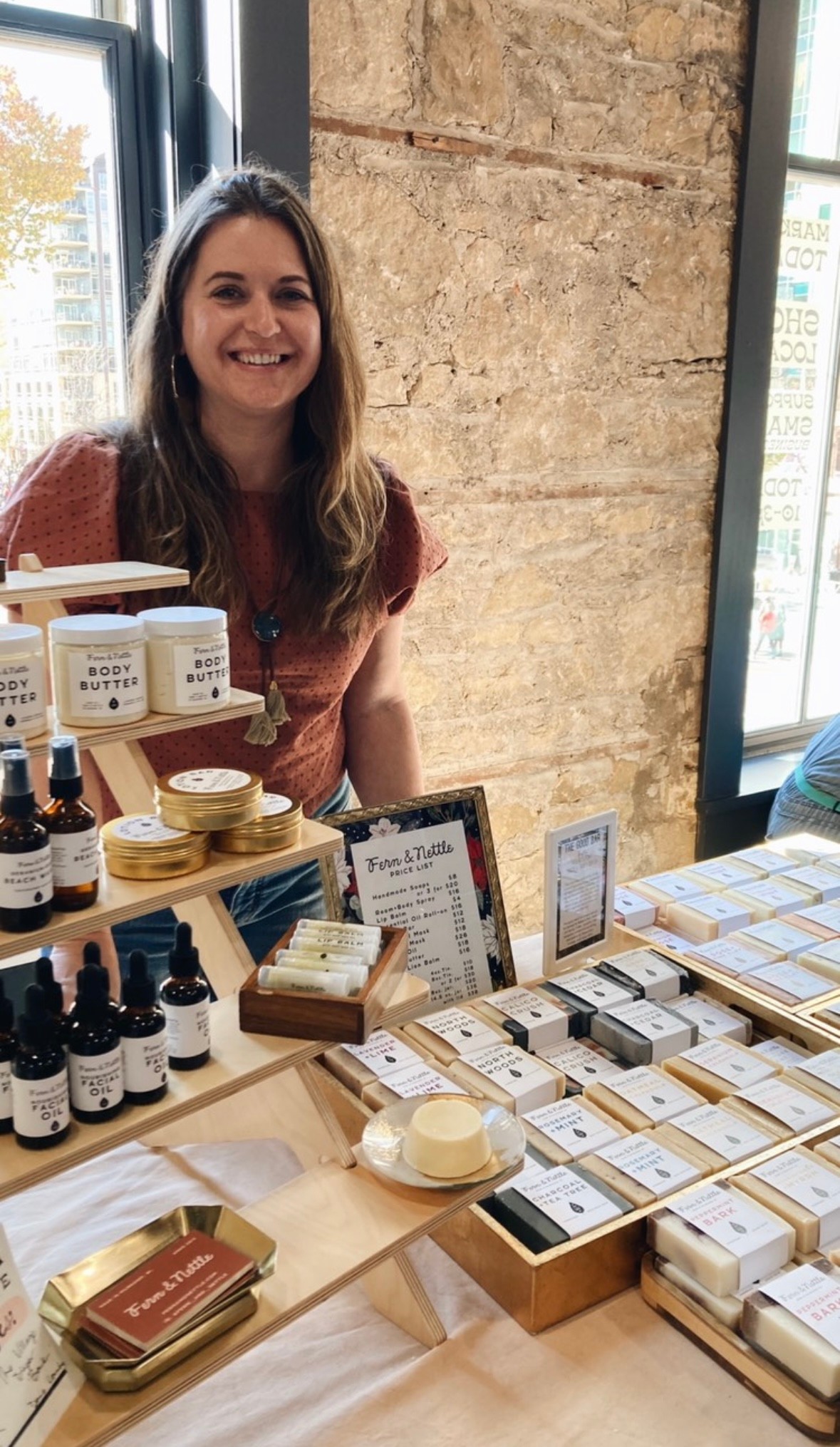We caught up with the brilliant and insightful Jenny Aicher a few weeks ago and have shared our conversation below.
Jenny, thanks for taking the time to share your stories with us today Let’s kick things off with a hypothetical question – if it were up to you, what would you change about the school or education system to better prepare students for a more fulfilling life and career?
As a former full-time educator, this question hits me deeply to my core. Buckle up for a heartfelt rant..
I was a public Montessori teacher for ten years, and continued part-time work in the profession for years beyond that. While Fern&Nettle is my full-time focus, I still stay connected to the local education community.
I am a huge fan of the Montessori approach to education– following the child, meeting them where they are at within an educational system that is differentiated by design. Montessori fosters intrinsic motivation and creativity. Its absolutely fantastic and I am so very grateful to have worked in Montessori here in Milwaukee. I actually just attended the celebration of 50 years of Montessori in Milwaukee, and Milwaukee is a national leader in public Montessori offerings. Unfortunately though, the funding isn’t there for our public schools. I could go on and on about what Act 10 did to our urban schools in Wisconsin, how inequitable funding has become, how much the expansion of the voucher program has had tremendous negative effects, etc., but that would be too much for this here.
Funding is key, I think. I don’t have children of my own, but I recognize that we all benefit from the public schools. We want children to grow up being kind, compassionate, creative, independent thinkers and problem solvers. When we lift others up, we as a community are all lifted up. Education is the key to opportunities of economic and social. justice. We must fund and prioritize early childhood education (the data is unequivocally positive for children and families) We should offer free school lunches to all that want it, as was started during the pandemic and the results were huge. We must as a society try to minimize the hurdles children, young adults, and families face in education. Make it easier for children and families to thrive. Find a way to get school bus drivers so kids can actually get to school. Reduce class sizes so teachers can focus on helping the children learn rather than just crowd management. Fund public universities, offer college credits or associate programs in high school. But also guidance counselors to help kids and families understand what resources are available and how to access those resources. Help people to succeed by meeting them where they are at and know that one size doesn’t fit all.
Okay, off my soap box and back to soap…
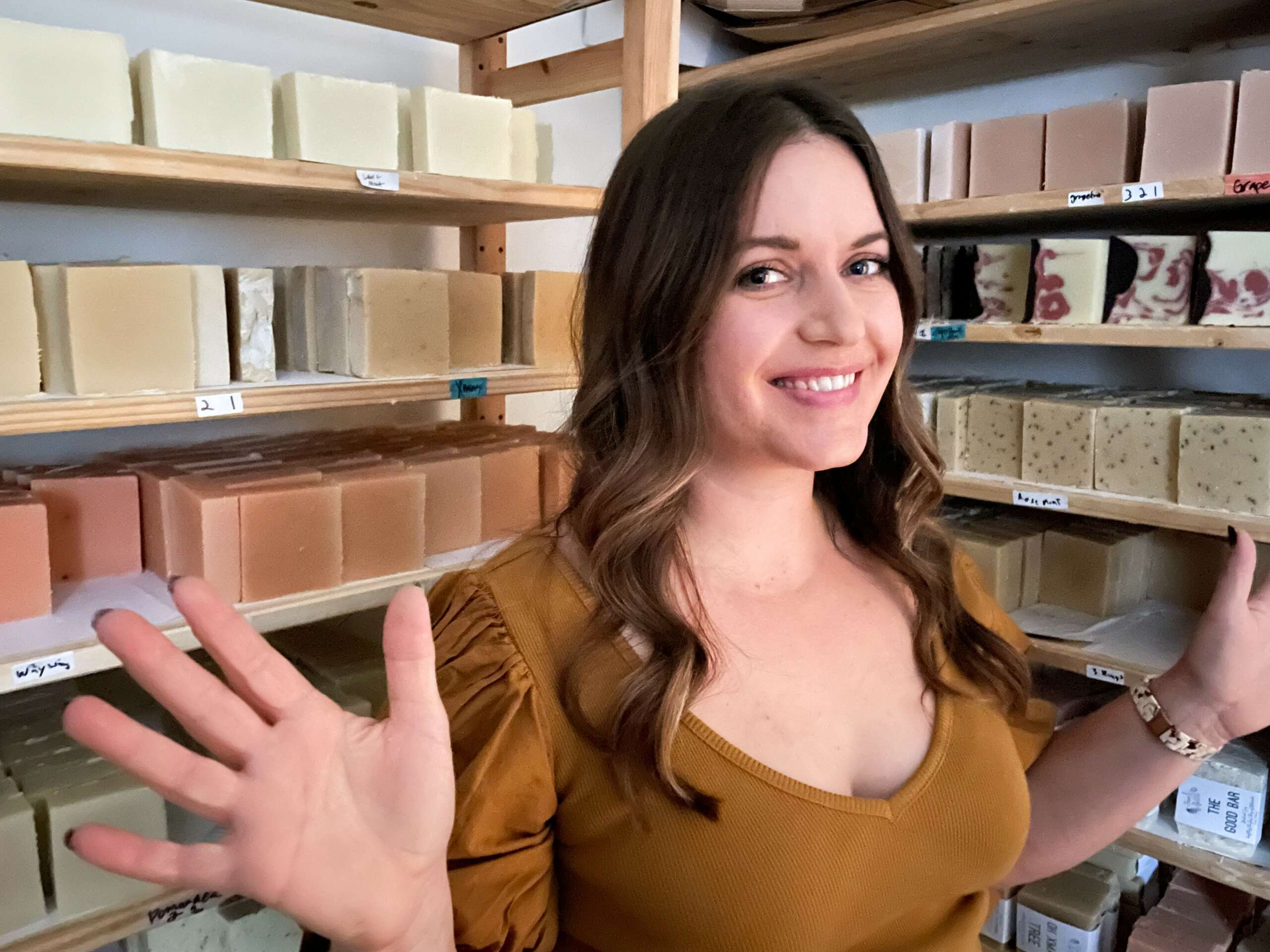
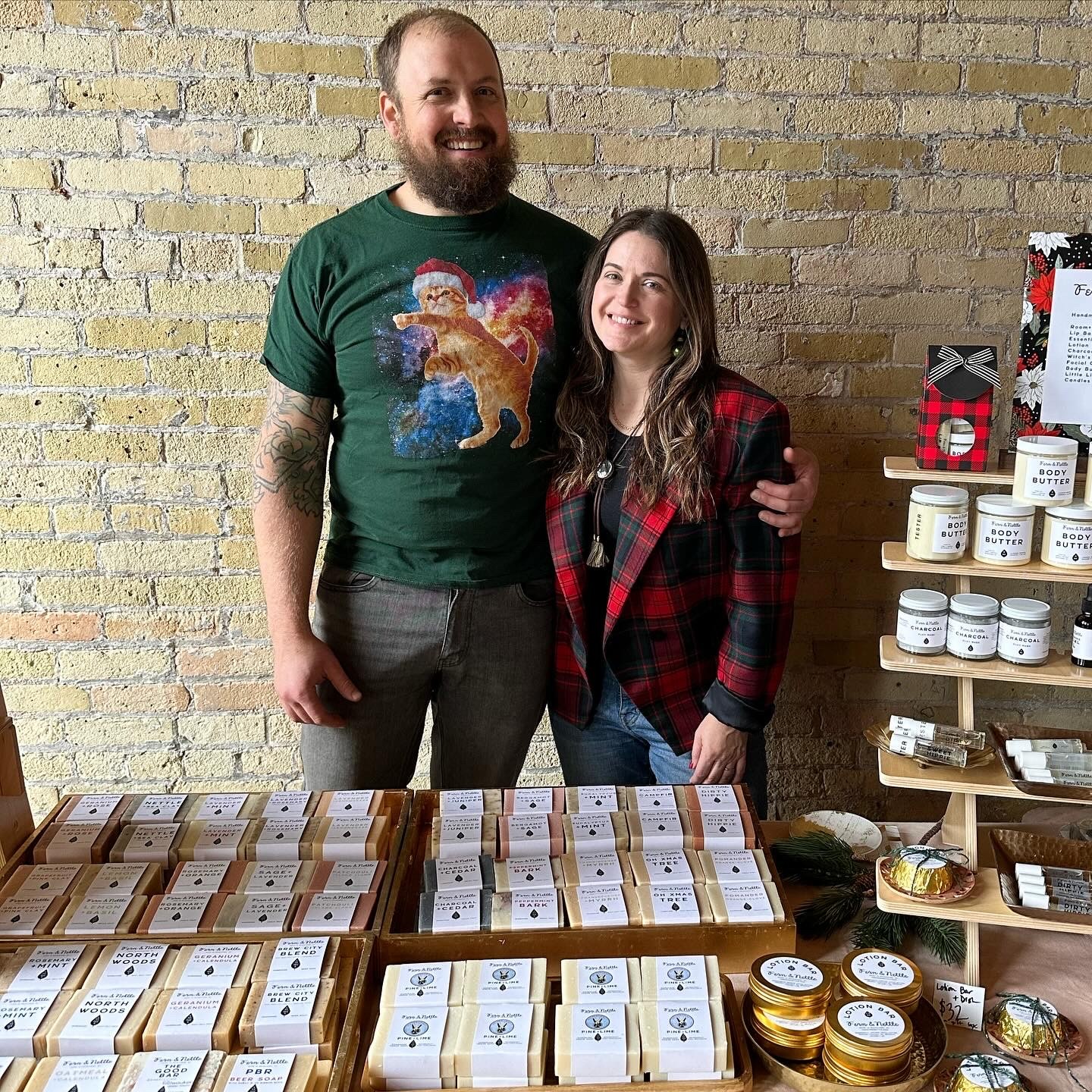
Jenny, love having you share your insights with us. Before we ask you more questions, maybe you can take a moment to introduce yourself to our readers who might have missed our earlier conversations?
When I started my business in 2013, I had no idea of where it would take me or even what I wanted it to become. I was a public Montessori teacher at the time here in Milwaukee. I have always been a fan of history (my undergrad major), especially the human experience, which has made me a fan of living history museums. I was at Old World Wisconsin and saw a soap-making demonstration and found it fascinating. A week or so later, I realized a local non-profit I was a member of was offering a soap-making workshop, so I signed up. I was fascinated and reached out to a friend to see if she wanted to come over to my home and make more soaps for holiday gifts. Everyone loved the soaps we gifted, and we decided to make a little business of it.
In 2013 the maker community was still small– nothing like it is today with so many different markets to sell handmade goods, but at least there was Etsy, and a new maker market was coming in spring to the parking lot of a coffee shop down the street– so we signed up! We filled out all the confusing paperwork to establish an LLC, open a business bank account, all the things. And priced our products way too low. We did our first market in spring of 2013 and a few more as the year progressed. At the end of the first year, we parted ways as business partners but still remain close friends. It was a perfect split, and I am so very grateful.
I continued to build the business as my side-hustle while I kept my Montessori classroom as my top priority. It was A LOT to juggle, but I managed. Then the pandemic hit. I was increasingly overwhelmed with the teaching profession– I knew it wasn’t sustainable for my mental health, but I enjoyed the safety of a paycheck, retirement account, and most importantly, health insurance. I had also invested a lot of time and money into earning all of my credentials and a Master of Education and honing my skills. But I also wasn’t comfortable working in a classroom in-person during the depths of the pandemic. I resigned after my 10th year as a classroom teacher, 7 years into my Fern&Nettle business. I decided it was time to go all-in. Or mostly in… I was still terrified of buying insurance on the marketplace. I took a less-involved position with less hours but still health insurance with Milwaukee Public Schools, but by fall of 2022, I knew I had to really go for it with my business, and I resigned. I did a little work at the university level and some work here-and-there within the Montessori community, but then scaled that back, too. No regrets.
The entrepreneurial spirit was always in me. I always wanted to work for myself and to have my own business. I suppose that is in part from my childhood when my family grew and sold pumpkins at a roadside stand on my grandparents’ farm. From age 5 or so until middle school, every summer meant weeding and watering the pumpkins, and in fall, selling the pumpkins (and embarrassed in my farmer clothes when friends would come and buy them..) But it taught me a lot of important life lessons, as well as helped me create a savings account for college later. And it lit in me the desire to work for myself, selling my own products.
College and early 20s had me working at and managing cosmetic counters in Milwaukee and the Bay Area. All these different paths helped me create and cultivate Fern&Nettle to what it is today. People often. ask me my plans for the future of this business, and I still don’t know what I want it to be. Do I want to scale it and grow, do I want to keep it small but sustainable? As I’ve grown older, I have accepted that I do not have to have all the answers; I do not have to have my plan laid out. I can take it as things come and embrace the journey. The pandemic has shown that we cannot predict the future, and for me, I want to make sure I am enjoying the journey and living a fulfilling life– connecting with others and giving back to organizations and causes I care about. I am learning to live a balanced life.
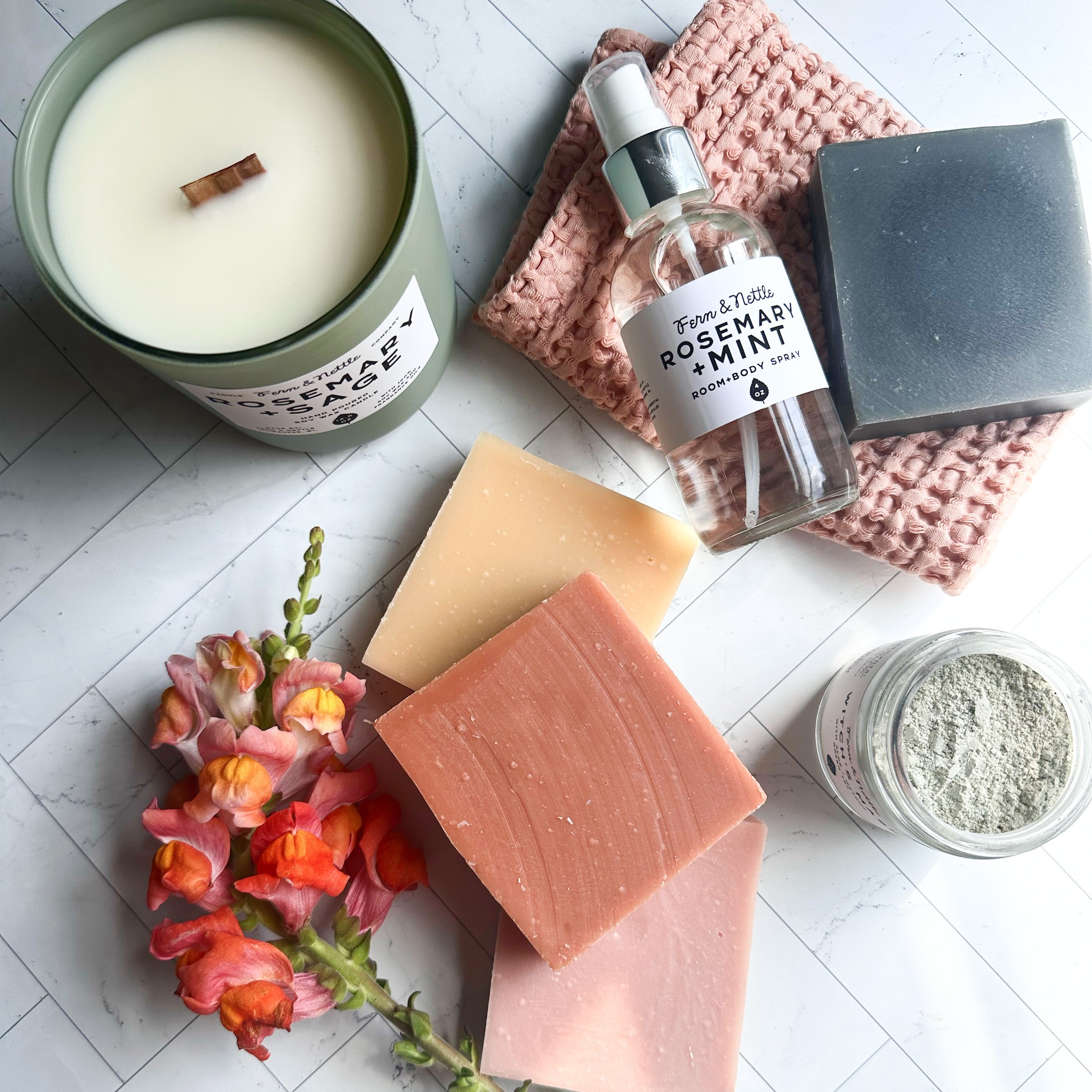
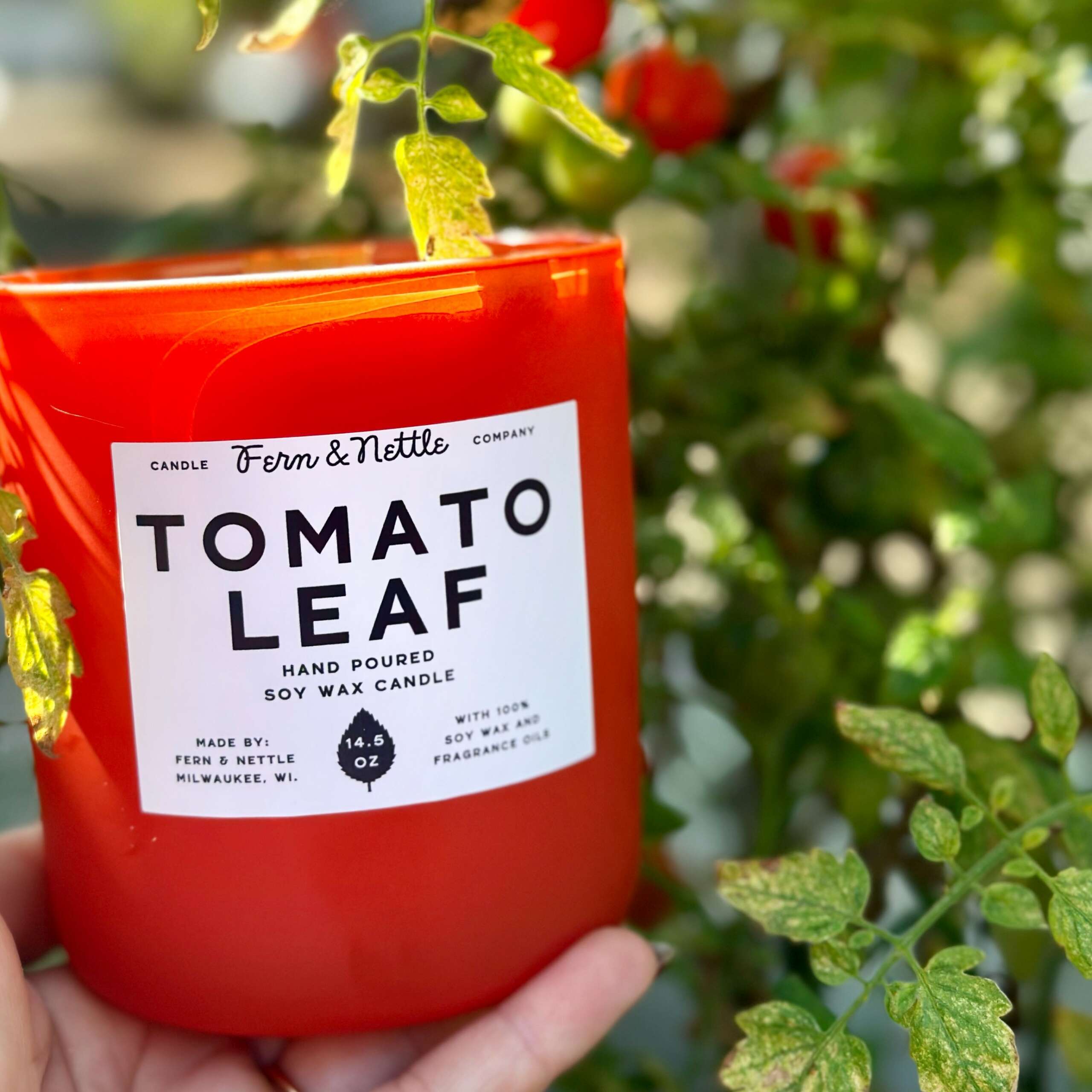
How did you build your audience on social media?
Can we all agree that social media is weird? We are all connected to people in weird ways through different apps. I know there are a lot of things to hate about social media, but I also am so very grateful for it, both on a personal level and for my business. I can connect with customers– sharing new products, market schedules, promotions, so much more. I can find out about new shops and “meet” other business owners. I can message retail partners and we can promote each other.
My approach to social media is to be authentic. (Are we still using that term, or is it too played out?) I am my business. I try to be authentic on my social media (mostly Instagram, if I am being honest, I forget about my Facebook page..) I share glimpses of my life and my process with making soaps and candles and salves and all the products. I am the one that runs my account and I am the one that responds to DMs.
I have about 7,500 followers on Instagram, which seems like a lot but also not a lot if I want to play the comparison game. But wow, 7,500 accounts have chosen to follow the content I share. That’s wild when you think about it. (I wonder how the 75k accounts feel..) I have built that all organically. I am sure if I spent the time to make more reels and something went viral, I might magically get more followers, but I’m happy with the authentic slow and natural growth.
I try to reshare almost every post from my retail partners that include my products. I also go out of my way to tag other businesses in my stories when I am out and about– getting coffee at a locally-owned coffee shop, a beer at a small brewery, shopping at small shops, all of it. Then sometimes they also reshare my stories in their feed and we all benefit. I know I have found out about a lot of small businesses from other people’s feeds, and I a love it!
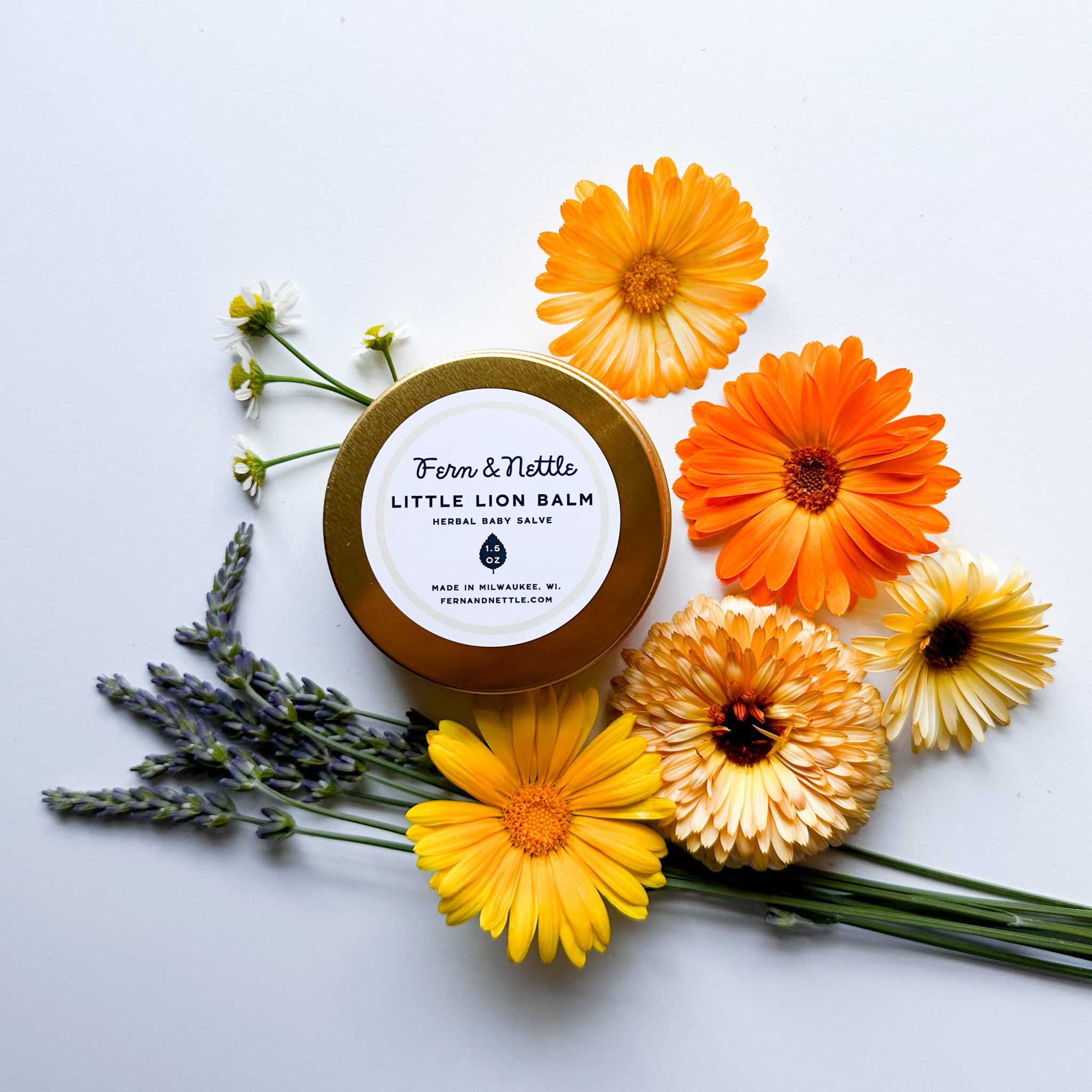
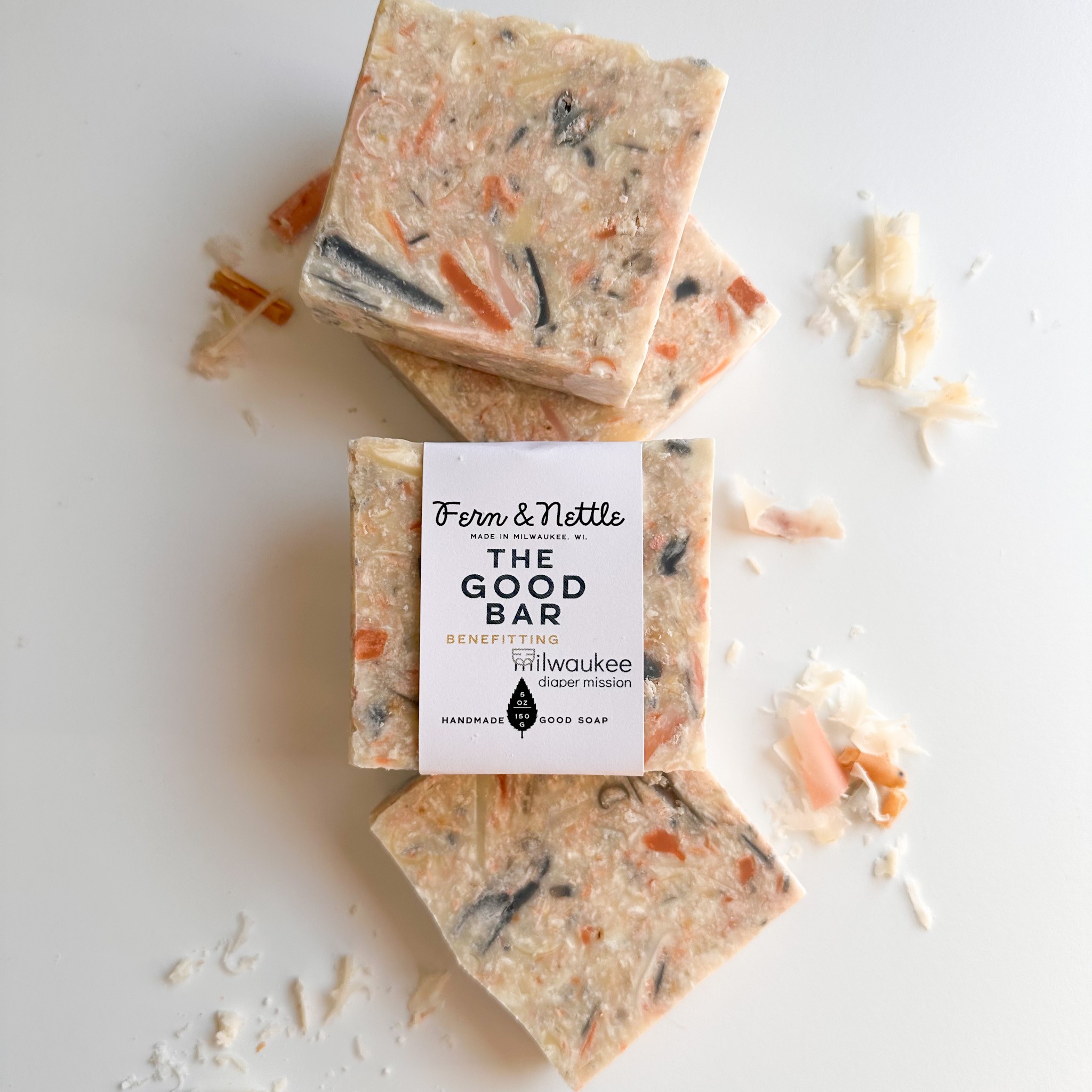
Where do you think you get most of your clients from?
Until I moved to doing Fern&Nettle full-time, I didn’t really seek out new retail clients– they magically seemed to come to me as I built a strong reputation locally. Once I transitioned to doing my business full-time, Faire has been the best source. It breaks my heart a little when a new order comes in from a shop that I know found me organically but then didn’t use my Faire Direct link and I have to give Faire a commission on every order that shop ever places, that can be a bit hard to stomach, but overall I remind myself how much business I have gotten from shops that have found me on Faire. Most local shops reach out to me directly and I can then send them my Faire Direct link to avoid those commission fees or they order directly through me, so it balances out. (If you’re a shop owner reading this and want to carry Fern&Nettle products, send me that message first for my link *wink wink*)
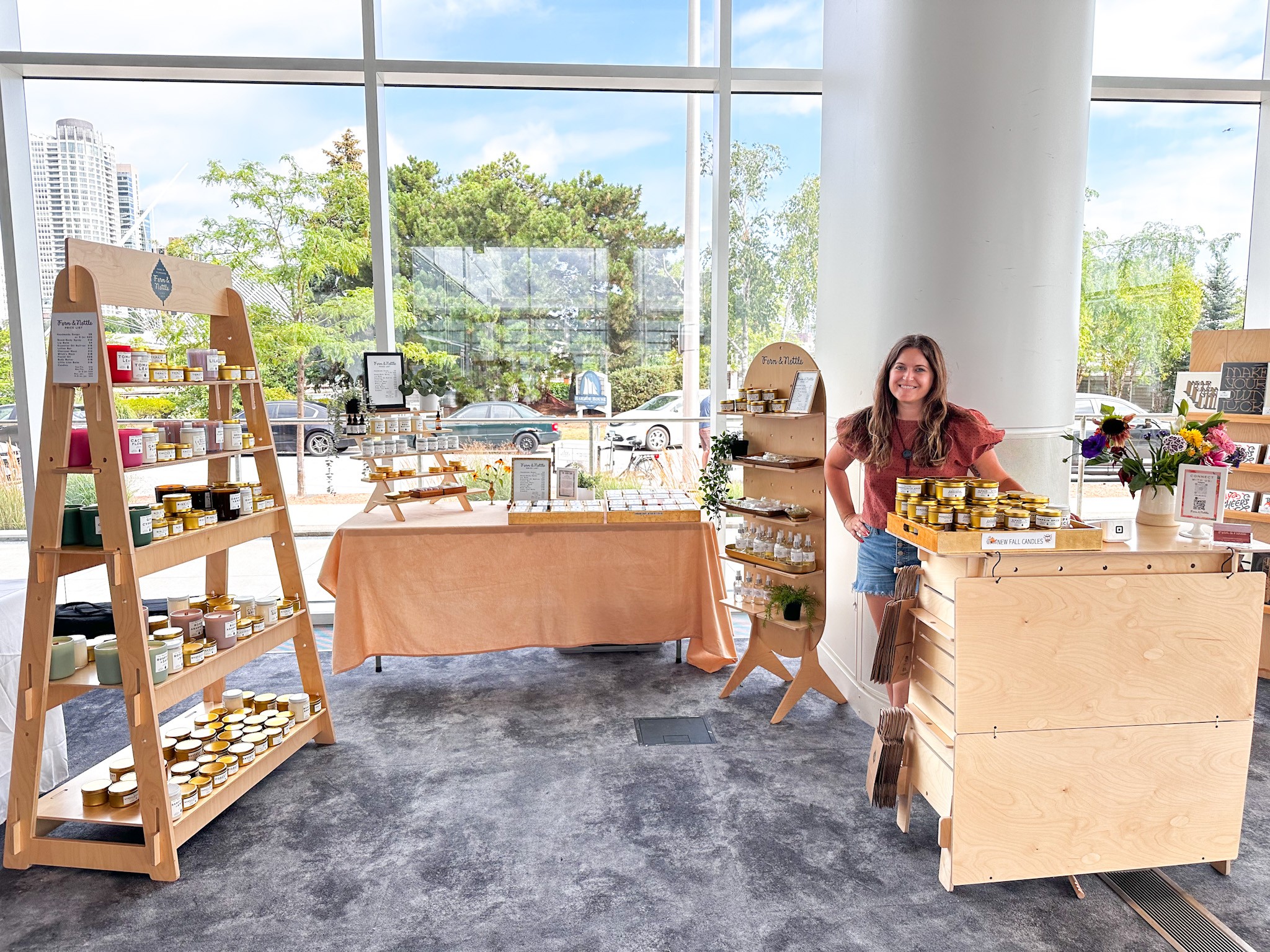
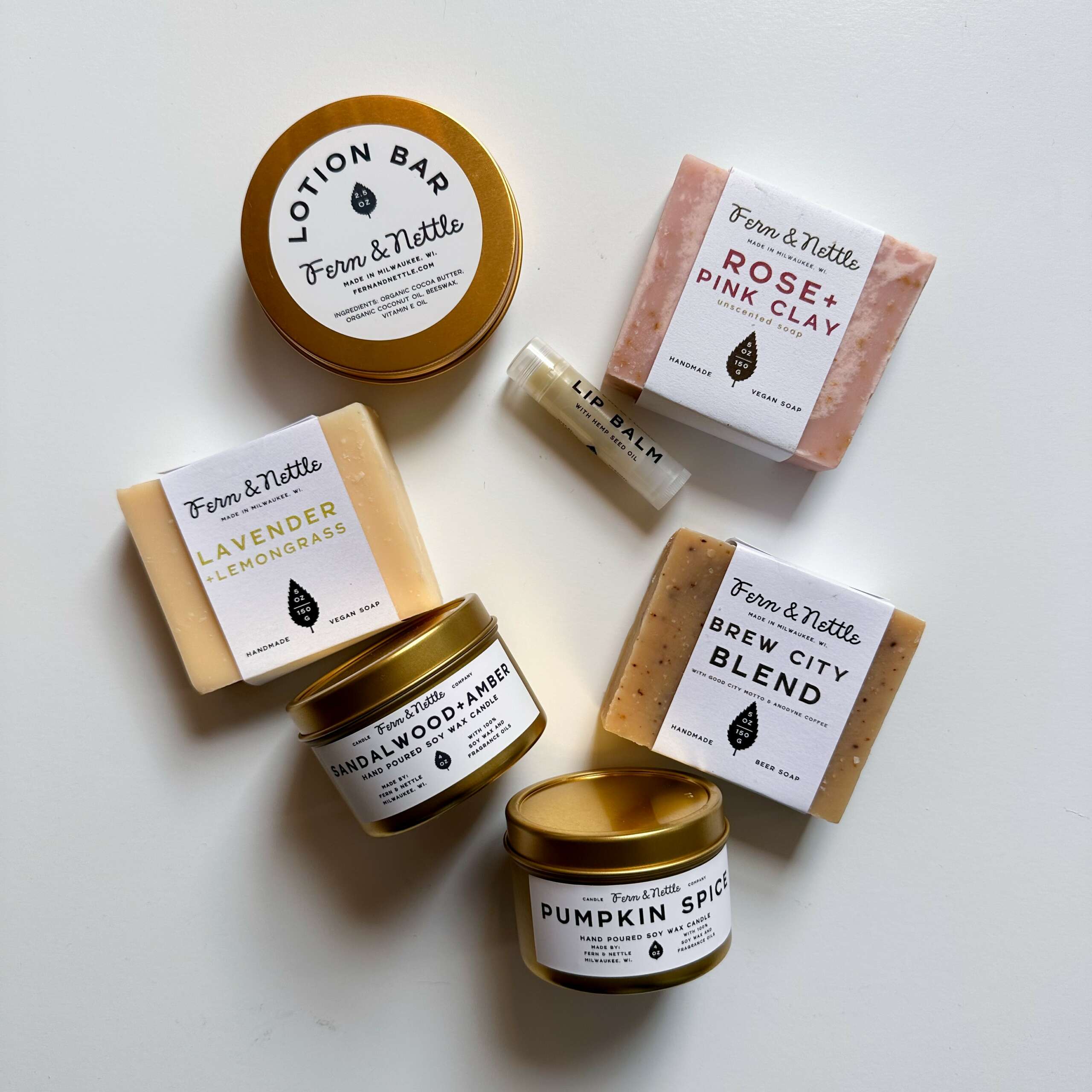
Contact Info:
- Website: https://fernandnettle.com
- Instagram: @fern_and_nettle
- Facebook: https://www.facebook.com/FernAndNettle/
- Other: Faire https://faire.com/direct/fernandnettle


